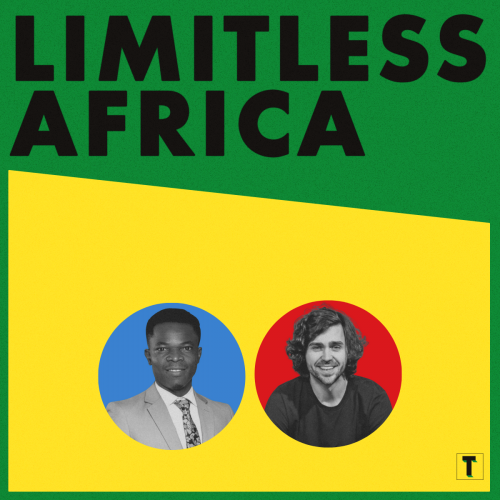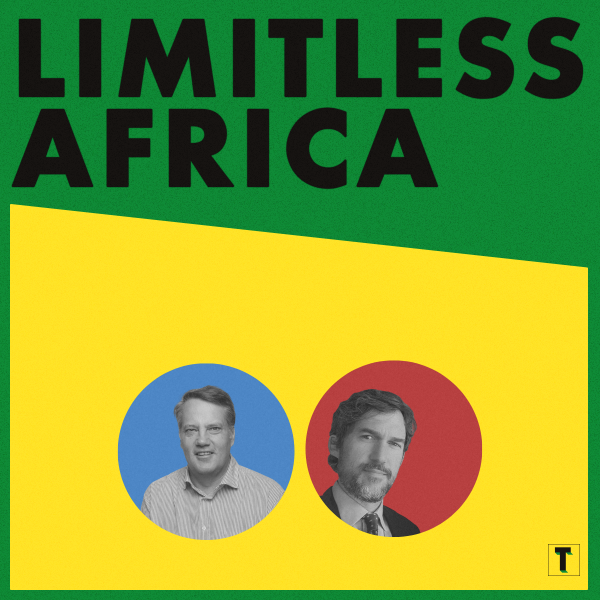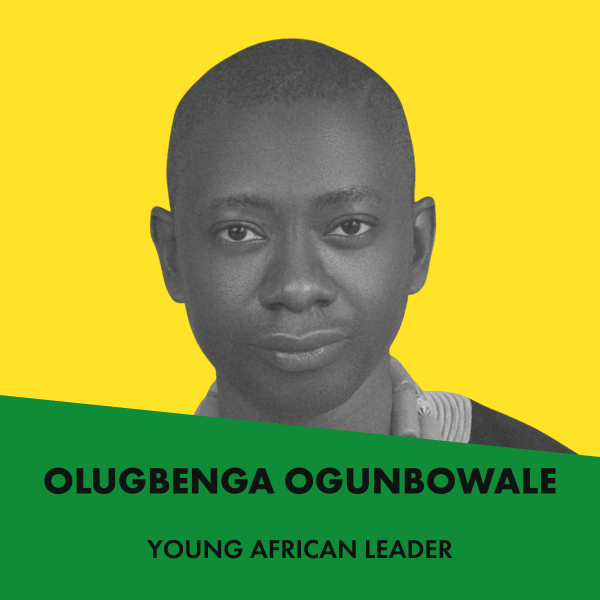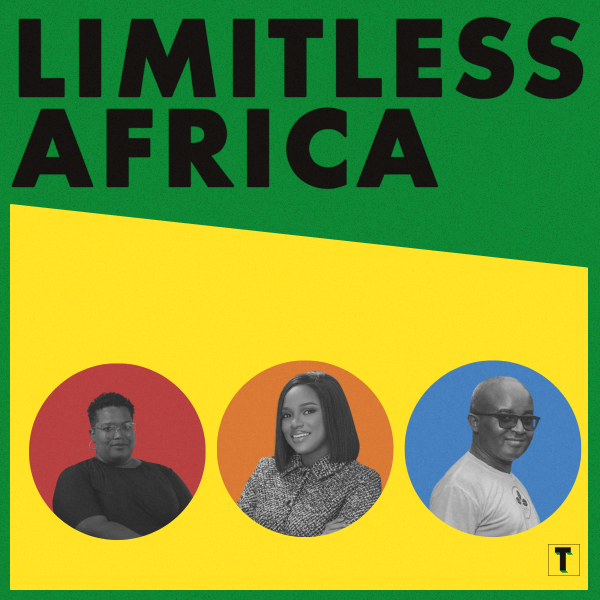CLAUDE:
You’re listening to Limitless Africa, the podcast that looks at how Africa and America can work together for shared prosperity. It’s sponsored by the US Department of State and the Seenfire Foundation.
CLAUDE:
On Limitless Africa this episode… Cryptocurrencies were once associated with scammers and fraudsters.
DIMPHO:
Now these digital assets are becoming mainstream.
CHRIS MAURICE:
We wanted to serve every country that we could, right? We wanted to make sure that this technology is available to anybody that needs it, no matter where they are, no matter what currency they were born into.
DIMPHO
But what does that mean for ordinary Africans? Could it make sending money back home easier?
CLAUDE:
We’re going to start with a little story. I’m going to let Chris Maurice set the scene by explaining how he got into crypto in Africa while still at college in the Deep South.
CHRIS
Yeah, I mean, I think my sort of… you know journey into the space is a little bit different than ah than most.
So you know to your point, at this point in my life, I had already gotten into gotten into Bitcoin, gotten into the crypto space. ah My co-founder is the guy who would walk around college parties evangelizing the gospel of Bitcoin.
And so by 2015, I was, you know, fully down the rabbit hole.
And not long after that, we met this this Nigerian guy in a Wells Fargo in Auburn, Alabama, the the capital of innovation.
CLAUDE:
They were both standing in line for the bank…
CHRIS
Who was sending $200 to his family.
And the bank charged him $90 to send $200. And I thought, you know well, that’s that’s insane, right?
DIMPHO:
Lots of people across the continent are faced with the same insanity…. Let’s hear from Peter Onisha Peregbakumo, who’s originally from Nigeria.
PETER PEREGBAKUMO:
I’m a software engineer and co-founder of a company called Book me.
Yes, so I moved to Ghana in 2015 mainly to do my university studies. I had a student bank account. I had like daily limits that couldn’t go past. And also they were like insane withdrawal charges from the ATMs I used because I was using the Nigerian debit card trying to withdraw from the ATM in Ghana. So that was an issue for me.
CLAUDE:
I send money to family in Togo every month. It adds up. African countries are still the most expensive to send money to and from. And this matters…
DIMPHO:
For some, like Peter, charges and transfer fees can play havoc with their finances.
For others, remittances can mean the difference between life and death.
FRANK ELEANYA:
Often these monies are sent to cover living expenses, they are sent to cover education, healthcare or emergencies and sometimes even for business support.
CLAUDE:
That’s Frank Eleanya, an experienced tech writer currently at the website Tech Cabal. But why is it so expensive to send money?
FRANK:
Why they are so expensive is because of the fact that um they involve different players.
And for each of these layers, money is being expended or fees are being collected.
Those loops are actually very important. Why they are put in there is just to ensure trust, just to ensure that the money gets to the recipient at home.
CLAUDE:
The various checks by banks, credit unions, and money transfer services may be necessary but they make sending money more expensive. And slower.
FRANK:
If you are going to buy something, say in Ghana, you probably take like five to six days for that thing to finally arrive after you’ve made your payment, after you have gone through the exchanges and all the banks that are in between that transaction.
But it is not that way with cryptocurrencies. If with with a crypto like Bitcoin, for instance, if I buy something from you and say I’m in Nigeria and you’re in South Africa, I’m able to make payment and you get it almost immediately.
And what that does is that it eases cross-border transactions. And transactions in cryptos are more in value or in volume compared to maybe fiat currencies when you talk about remittances.
DIMPHO:
Crypto is booming across Africa. In Nigeria alone, crypto transactions were worth $59 billion last year.
Let’s go back to Chris to find out how a student in Alabama built a multi-million dollar business providing crypto in Africa.
CHRIS:
I just became obsessed with this problem and and started doing all this research and and trying to understand you know the country and the currency and the continent and the banking system.
And I realized if I want to understand Nigeria, I need to speak to somebody from there. And so i um i put out an ad online that said, looking to speak to Nigerian men, which, you know,
CLAUDE:
which sounds er very dubious.
CHRIS
Yeah, in hindsight, probably could have been worded better. But I got exactly what I wanted, which was my DMs full of Nigerian men. So it worked very well from that from that standpoint, right?
And so, yeah, you know, I mean, essentially, this is about the point of my life where I learned that Nigerians are the most convincing people on the face of this planet. um because within about a month and a half of meeting this Nigerian man on the internet, he convinced me to go get a passport and take the first international flight of my life.
I had been on a plane four times in my life before starting the company, and I land in Lagos, Nigeria on a six-day-old passport, no visa, no shots, and a one-way ticket that we spent all of our money on.
So the options very literally were build something that works or live in Nigeria for the rest of my life.
DIMPHO:
And so he built something. Something that makes it easier to buy, sell, and store digital currencies. Yellowcard now employs about 270 people, operates in 20 African countries and works with approximately 30,000 businesses. More than $3 billion dollars worth of crypto have been traded on the Yellowcard platform this year so far.
But before we start talking about these huge amounts of money, perhaps Chris could explain what cryptocurrencies actually are.
CHRIS:
And so, um you know, I think um the the best way to think about it in in layman’s terms, right? The most important piece of this technology, no matter what token you’re talking about whether you’re talking about Bitcoin, stable coins, dog coin, cat coin, whatever, is blockchain, right?
And what you know what blockchain technology unlocks for the world is the ability to settle transactions with 100% confidence without a third party intermediary.
I.e., I can send you money and you will know for sure that you’ve received that money without a bank or you know some other third party application having to tell you that you’ve received that money.
And blockchain does that through a distributed ledger, a distributed network of validators and and computers essentially all over the world that are confirming these transactions.
So when I send you Bitcoin or when I send you you know USDT or or you know anything, right there’s all these computers around the world that help to confirm those transactions and keep each other honest right and get rewarded for that.
DIMPHO:
In other words, blockchain is a giant shared record book that anyone can check, but no one can secretly change.
And so it allows these transactions to actually take place outside of banking.
CHRIS:
Right. It’s, ah you know, I mean, this is the first technology that opens it up where people can actually transact person to person without any third party needing to be involved. And so, you know, what that what that unlocks when you start talking about like crypto, when you start talking about stable coins, when you start talking about you know digital assets is the ability to move money anywhere in the world instantly for I mean, you know, pennies. and know for a fact that your recipient received it.
DIMPHO:
Again, to recap — cryptocurrencies are a type of digital currency that allow people to make payments directly from one person to another through a secure peer-to-peer platform (that’s P2P for short). They can then exchange them back into traditional currencies and spend it! But how does it actually work in real life? Back to Peter
PETER:
I discovered P2P, my dad would have sent me money, he would just send the money to my Nigerian account, and I would go on any of the crypto platforms. So with that, I would just transfer the money and do a P2P transaction and on the market instantly, or within like less than five to 10 minutes, I would have somebody in Ghana and buy my crypto and give me Ghana cities with like no charges. That was insane.
DIMPHO:
He uses it for work
PETER:
And after university, I started working with some freelancers, and I also started working for a company. At the time they would just send me the crypto. and I would trade that and get a local currency. And that was easy, and was truly what I saw as the borderless payment.
DIMPHO:
And for family.
PETER:
Yeah, and oftentimes I need to send money to my siblings, my younger siblings in Nigeria, and I would always just rely on the P2P to make that happen for me.”
DIMPHO:
No wonder people find it helpful.
CLAUDE:
Back to Frank Eleanya on the growing presence of crypto in Africa.
FRANK:
In 2017, for instance, there was a lot of interest. We had companies like Binance that came into the continent. there was Luno, you know, um expanding to different parts of the continent.
And these cryptocurrencies like Yellowcard, like a Luno, like Quidax, many of them have positioned themselves in such a way that people are able to make payments you um effortlessly and seamlessly as well. So um over time, we have seen the market grow and we have also seen more people coming to them um um coming to the market. We’ve seen demand grow.
CLAUDE:
But he’s also clear on the dangers.
FRANK:
Because of the anonymity of the cryptocurrency market, there tends to be that tend to be in all it tends to attract people of shady characters. People of shady characters want to be part of it.
And when they come in, what they do is they use it to launder money, they use it to move money from one end to another. So, many governments have now come in to say, we need to put some measures here to be able to identify those money movements and stop it from happening.
Nigeria is one of those countries that are doing that. um The US is also doing something along that territory, you’ve got the you’ve got the European Union and several other countries that are also thinking in this direction.
CLAUDE:
While governments are catching up, Frank explained how consumers can keep themselves safe.
FRANK:
OK, so first of all, before you become a part or before you start thinking about using cryptocurrencies to send money home, you first need to think about what what crypto you’re going to use. That’s very important.
Is it Bitcoin? ah Is it stablecoin? Then you also need to think about the exchange that you’re going to use.
One of the best advice I think I’ve got in the cryptocurrency market is always use the exchanges that are known, the ones that everybody is using, the ones that are popular with people that have got reviews that people have traded with.
CLAUDE:
And Peter had some advice too.
PETER:
I’ll need whoever listening to this to understand that using crypto is different from crypto trading. I’ll repeat that again. Using crypto, like sending crypto or using crypto for payment, is different from crypto trading. Crypto trading, that is a different discussion. It’s like forex trading. So definitely, depending on how the market is doing, your money will be reducing and you’ll be making losses or wins. But then that’s a discussion for another day.
DIMPHO:
There are ways to make sending crypto safer.
PETER:
There are certain things, certain precautions that you need to take.
First things first, do not ever share your login credentials or recovery codes or passcodes or keys with anybody.
Next thing is, if you’re on the P2P platform trying to send money, you have to be very careful. If somebody has asked you to send money, make sure the name that displays matches the name that the person gave. Because you have to make sure you don’t send the money to the wrong person, and then you’re stuck between. It’s now your word versus their word.
And my best advice too, is if you’re doing P2P, always just trade with the stable coins or the US dollar equivalent.
DIMPHO:
Stablecoins are pegged to the US dollar, which makes them less volatile than other cryptocurrencies. YellowCard is just one of the cryptoexchange platforms providing stablecoins in Africa. And from small beginnings in 2016, they have big plans. Crypto continues to boom!
CLAUDE:
What are your plans for the future when it comes to Yellowcard?
CHRIS:
We’re trying to grow, baby. Only one way to go. Gotta go up and to the right, baby.
CLAUDE:
As in expanding to all 54 African countries, like that?
CHRIS:
We want to be everywhere, right? I think one of the big things that we decided early on was, you know, we wanted to serve every country that we could, right? We wanted to make sure that this technology is available to anybody that needs it, no matter where they are, no matter, you know, what country they were born in, what currency they were born into, etc.
DIMPHO:
Crypto currencies can make sending money home faster, safer and cheaper for Africans. And some of the biggest players in the space are American companies looking to serve African customers. It shows exactly what can happen when Africans and Americans work together for shared prosperity.
And for that Nigerian man in the Alabama bank line — and millions like him — it could mean never paying $90 to send 200 again.









